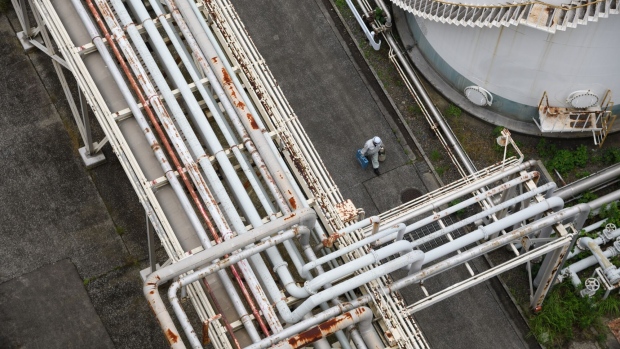Nov 13, 2023
Japan’s Green Switch Falls Short of Global Goals, Climate Researchers Say
, Bloomberg News

(Bloomberg) -- Japan’s planned transition toward cleaner energy contradicts pathways recommended by a United Nations body to help keep global warming from rising by 1.5C, according to climate research group InfluenceMap.
The nation’s green plan — known as the GX policy — is “significantly misaligned” with the Intergovernmental Panel on Climate Change’s guidance on limiting the rise in global temperatures, said InfluenceMap. The group cited the policy’s reliance on coal, liquefied natural gas, hydrogen and ammonia.
Japan formally approved its basic plan to tackle climate change in February, and the resource-poor country has argued that it needs all available tools in order to decarbonize its economy. InfluenceMap said the Asian nation’s policy also poses risks to long-term global emissions goals.
Energy transition technologies like batteries, hydrogen, ammonia and next-generation vehicles are key to “Japan’s economic growth and decarbonization,” Prime Minister Fumio Kishida said last week, adding that the government will provide investment support in those areas.
Read More: Asia’s Co-Firing Ambitions May Produce More Carbon Emissions
InfluenceMap said Japan’s biggest business lobby Keidanren, which opposes the introduction of a carbon tax and has backed the use of ammonia, was among the most active groups engaging on climate and energy policy over the last few years. The climate group cited Keidanren and industry influence last year.
Keidanren will work to decarbonize the Japanese economy through the pathways it proposed in a report in May 2022, and achieve net zero emissions by 2050, an official said. Japan’s trade ministry, which oversees the nation’s energy policy, declined to comment on the InfluenceMap report.
(Updates with response from Keidanren’s and Japan’s trade ministry declining to comment in sixth paragraph.)
©2023 Bloomberg L.P.


